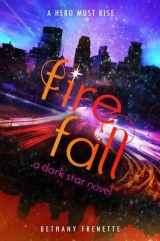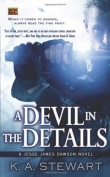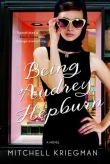
Текст книги "Fire Fall"
Автор книги: Bethany Frenette
Жанр:
Классическое фэнтези
сообщить о нарушении
Текущая страница: 4 (всего у книги 16 страниц)
When I found him, he was leaning with his hands against the dugout, nodding to something his coach was saying. His entire body was shaking. His helmet lay in the dirt at his feet, and his hair was sticking up in damp clumps.
The coach was worried about heat exhaustion. He kept pushing a water bottle at Gideon, which Gideon finally accepted—though he insisted he didn’t need to go to the ER.
“I’m just sick,” he said. “I haven’t been feeling well all week.”
After a while, the coach seemed to accept this explanation but still made the decision to send him home. He clapped a hand to Gideon’s shoulder. “That was a hell of a hit, Belmonte. Straight into the stratosphere.”
Gideon only nodded again.
“Are you all right?” I asked.
He turned and looked at me. His eyes were watery, his face slick with sweat. “I threw up.”
“You’re sick?” Tink asked, coming up behind me.
I stepped toward Gideon, but he flinched away.
“Don’t—don’t touch me,” he said. Then, after a moment he added, “Sorry.”
Worry gnawed at me. I wanted to comfort him, but I didn’t know how. I didn’t even know if it was possible. It wasn’t overheating that had caused his agitation, and it wasn’t illness.
He was afraid.
That panic I’d felt was his. It was in each word he uttered, each breath exhaled. It radiated out of him.
I knew then what had happened. Somehow, for the briefest of instants, the sleeper had stirred. Verrick had touched the surface. And Gideon might not understand what had occurred, but he sensed it. I thought of the swing I hadn’t seen, and the ball arcing above us. Whatever burst of strength he’d gotten in that moment, it hadn’t been human. It wasn’t natural, and Gideon knew it.
You’re Kin, I thought, closing my eyes, willing him to believe it.
“Sorry,” he repeated.
“You don’t have to be sorry,” I said. “You’re the one who’s sick.” Like it was the flu, I thought. In a week he’d be over it.
“Are you going home?” Tink asked. “Are you okay to drive?”
“I’m better,” he said, though he didn’t particularly look it. “I’m just gonna go home and take it easy.”
I stepped forward again, and this time he didn’t pull away. I wrapped my arms around him, hugging him fiercely. I could feel the bones of his shoulders, the rapid drum of his heart.
Tink hugged him next, sliding her slim arms around him and squeezing him tight. “Someone arrest this boy,” she said once she’d released him, reaching upward and ruffling his sweaty hair. “He just broke the law of gravity.”
He gave her a thin smile. Then, with a promise that he’d call us later, he turned and walked toward the parking lot. We watched him go.
“You think he’s all right?” Tink asked once he was out of earshot.
I kept my tone casual. “If not, we’ll invade his house and feed him chicken soup.”
“Annoy him into feeling better. Good plan.” She grinned, heading back toward the bleachers, where we’d left our belongings.
My eyes lingered on Gideon’s departing form.
It was only a trick of the light, I told myself, the way the sun glinted on the grass, that made it seem—just for an instant—as though the shadow he cast was red.

That Friday was the Fourth of July, and though the closest Mom got to being patriotic was eating one of the red, white, and blue cupcakes Leon brought home from the bakery, she insisted we attend the fireworks at Powderhorn Park that evening.
Fireworks were something of a Whitticomb family tradition. When we’d lived up north, Mom, Gram, and I would sit in the grass and light sparklers, watching them sizzle and burn while fireflies glowed all around us. Four sparklers, always: one for each of us, and one for my grandfather Jacky, who had died when Mom was fifteen. Later, once we’d moved to the Twin Cities, the three of us would take a blanket and a cooler of watermelon and go from suburb to suburb, viewing a different city’s display each year.
After Gram died, we switched to watching the fireworks in Minneapolis. But this year we had been expanded to include Mickey as well as Leon. And even though I reminded Mom of the disaster that had occurred the last time she’d forced me into a double date, she wouldn’t hear of us attending separately.
“Weren’t you just arguing against clinging to tradition?” I asked. “We’re supposed to be celebrating independence.”
“From the British, not your mother.”
I would’ve protested further, but Mom forestalled me.
“Next year, you can go ahead and give me the finger,” she said. “Until then, unless you sue for emancipation, I still get to order you around.”
“You never obeyed Gram. She told me all about it.”
“Fortunately, you’re a much better daughter than I was.”
Then, before I could come up with a response, she unleashed a mother’s ultimate weapon: guilt. “This is about family,” she said. “You’re the only family I’ve got.”
There wasn’t really a way out of that one, but I tried anyway. “There’s Aunt Thena,” I pointed out.
Mom shot me a look. We only heard from her father’s aunt Thena, who lived in Nebraska, once a year—when she sent us Christmas cookies that tasted like Saran Wrap.
“Well, there is,” I argued.
“When Aunt Thena agrees to take your place at festivities, you’re free to do what you will.” She paused, narrowing her eyes. “And dressing Gideon up in your clothes won’t work, either.”
The Christmas we were ten years old, Gideon and I had snuck out of our houses in the middle of the night and swapped places—a stunt which neither of our families had found nearly as funny as we did. But thinking about Gideon led to worrying about Gideon, and I’d been trying not to do that. I’d called him that morning, and he’d assured me he was fine. So all I said was, “He wouldn’t fit anymore, anyway.”
And then I resigned myself to an evening spent with my mother and her boyfriend—instead of just with my boyfriend.
Not that I thought the night would’ve been particularly romantic, anyway. I’d put on so much bug spray, it was likely to double as boyfriend repellant. Leon probably wouldn’t want to get within three feet of me, but I wasn’t willing to venture out of doors defenseless. I already had eleven—I’d counted them—tiny red welts from mosquito bites, and every one of them itched.
“Are you trying to make a statement?” Mom asked when I came downstairs and plunked myself on the couch in the living room to wait for Leon. “Or is this some new form of passive resistance?”
“Mosquitoes find me very attractive. I’m attempting to discourage them.”
She snorted. “You’re not going to discourage them. You’re going to vaporize them.”
When Leon appeared in the room, he just started laughing.
Mickey arrived a few minutes later. He didn’t have any groceries with him tonight. Instead, when he stepped into the living room he handed me a small paper package, tied with twine.
“It’s a belated birthday present from my mother,” he said.
I’d met Mrs. Wyle all of twice, so I thought that was rather nice of her—though I was a little perplexed by the gift, which turned out to be a rose-colored woolen scarf that was taller than I was.
“She knitted it,” he explained.
“It looks really…warm,” I replied.
His eyes crinkled. “She’s going through a phase. Last year it was pottery.”
“She didn’t knit me anything?” Mom asked, somehow managing to sound both relieved and offended.
“I believe you’re next.” He leaned down and kissed her.
Mickey no longer appeared as rumpled and weary as he had when I’d first met him, but he still had a brooding look about him. His gray eyes always seemed slightly sad. I knew he was still troubled by his experience Beneath, and I didn’t blame him. I had been Beneath myself. I could remember the chill that had crept up my skin as I wandered through the void, that sense of something watchful in the emptiness. Something hunting me. Hating me. I had felt its craving. And my own stay had been brief, only a matter of hours. Susannah had kept Mickey Beneath for days. Being held captive by a deranged demon bent on ending the world would be enough to give anyone nightmares—and that was before having been forced to shoot his girlfriend. Mom had spent the past few months trying to convince him that it wasn’t his fault, but it still weighed on him. Maybe it always would.
He was typically open, easy to read, and though he was smiling, I sensed it in him now. A sort of quiet he carried. The memory of cold.
Mom must have sensed it, too, because she took his hand and squeezed it before hustling us all out the door.
The air outside was muggy, but it was at least cooler than it had been, and the sky was clear, with only a few wisps of cloud marking the blue. There was a hint of breeze, which sent clumps of dandelion seeds billowing upward like tufts of cotton. All along the avenue, the twilight had turned the trees black. Leon caught my hand and laced his fingers through mine.
Powderhorn Park was already crowded by the time we arrived, but we were able to find an open spot near the water with relative ease. I figured it helped that Mickey, while dressed casually in jeans and a black T-shirt, still looked every inch the detective. And even though he was sort of the opposite of scary, some little boy who ran into him let out a squeak of dismay and then scurried away at just under the speed of light.
“And that’s why I never had kids,” Mickey sighed.
It was another twenty minutes before the fireworks started, and while Mom and Mickey got into a lengthy discussion of whether or not it was acceptable for her to leave a mugger duct-taped to a tree—she said yes, he said no, and I merely hoped they were speaking in hypotheticals—Leon and I sat back in the grass, watching the city lights hit the water.
Leon hadn’t been in Minneapolis for the previous Fourth of July. He’d spent most of the month up north in Two Harbors, taking care of his grandfather, who had died of leukemia that August. Though Leon didn’t speak of his grandfather often, he was on his mind now. “He hated fireworks,” Leon told me. “Said they were a waste.”
I tugged off my sandals and slid my toes into the edge of the water, scattering ripples across the smooth surface. “Too bad he never met Gram. That would’ve been an argument to see.”
Leon gave me a crooked grin. “Oh, they met. He said he’d never known anyone who spoke so much nonsense.” He ducked away as I smacked him on the shoulder with one of my sandals.
“Then I bet he was just thrilled to have you guarding her granddaughter,” I said.
“He was thrilled, actually.”
“Tell me about him,” I said, watching Leon’s face. The dusk had darkened his eyes, making them appear more black than blue. His smile had softened. “What was he like?” I knew a little about his grandfather already, but I was curious. After Leon’s parents had died, his grandfather had been the one to raise him. I’d never seen any pictures, but I could form an image in my mind, pieced together from bits of Knowing and Leon’s occasional mentions. A tall man, hair touched with silver; a warm smile; a tinge of sadness. When Leon was growing up, his grandfather had brought him to the Cities for a few days each summer, to visit the lake where his parents had exchanged their wedding vows. And to the cemetery, to visit their graves.
Leon plucked a blade of grass and twisted it between his fingers. “Smart. Stubborn. Always convinced he was right.”
I arched my eyebrows at him. “Sounds familiar.”
He grinned again. “He usually was right. He was right to train me.” That was true, I supposed. Leon hadn’t wanted to be a Guardian and had resisted his grandfather’s attempts to prepare him. When he’d been called to protect me, he’d fought against it for months. “I told him that, when I saw him,” Leon added. “I told him about you.”
“What did you say?”
“That you were a pain in the ass, but I liked you anyway.”
I rolled my eyes. “You could’ve let me in on that little secret.”
“Which part?”
“The liking part. I knew the other half.”
He laughed, leaning forward and tilting his forehead against mine. “You know what he said to me? He said I told you so. Those were his actual words. He was pretty smug about it, too.” Then he shrugged, looking away. The blade of grass dropped from his hands. “He also said my parents would be glad.”
Leon’s parents had died when he was only two years old. What memories he had of them were few and foggy. Now and then, I caught a hint of Knowing from him, an impression that was frayed and distorted, as though viewed underwater—the image of a toddler waiting at a door. Wide blue eyes that never learned to stop worrying.
He’d hated his parents for a long time, he’d told me once. For dying together.
They had died fighting Verrick.
I shifted uneasily, drawing away from Leon. That was a topic better avoided. “Well, it’s a good thing you like me, since you’re stuck with me.”
One corner of his mouth quirked upward, but he didn’t answer.
The fireworks started then, interrupting our conversation. Light and color exploded overhead, flares of green and gold, vibrant blue, glittering white that left trails smoking in the sky. Their sparks fell to earth in dizzy arrays. I watched the reflection of the light wrinkling on the water, and between the blasts I heard the chatter of the crowd. Most of the stars were hidden, but a few stray gleams pulsed through, shy glimmers against the blaze of colors that split the horizon. Directly above, three were shining now. Bright red. Crimson bleeding into the night around them. Fireworks, I thought—but they didn’t burst into shimmers, and they didn’t fall.
I blinked, my chest feeling suddenly tight. The air in my lungs seemed to burn.
Beside me, Mom swore.
“We have a problem,” she said, turning.
I felt it a second later, as Leon’s hand closed on mine.
Somewhere out there in the crowd, there was a sudden shift. A change in the atmosphere. The night came into sharp focus, dividing into separate elements. Within the clamor of murmurs and laughter, a silence formed. Under the scents of sweat and beer and garbage, I smelled blood. There was something else here. A presence I knew.
Leon and I jumped to our feet. I spun, searching for the Harrower. My eyes caught details—Mom’s bright hair, Mickey standing tense and alert.
Then the demon came stalking out of the crowd toward us.
He wore his human disguise, but he was recognizable all the same. And he wasn’t neutral. There was no mistaking the flatness of his eyes, the sinister edge to his expression. It was there in the way his lips curved, the twist to his mouth that suggested nothing of warmth or humor, but of a predator hungry and eager, ready for the kill.
Mom was in motion before I could even gasp.
The Harrower saw her. He broke into a run.
The throng parted around them. The din of the spectators turned into a confusion of cries and shouts, punctuated by the burst of fireworks crackling overhead. Mickey took a step forward, but Leon’s free hand shot out and caught him by the arm.
It was over in a matter of seconds.
The Harrower leaped at Mom. His talons flashed out, dark scarlet slicing toward her, but the blow didn’t connect. Almost before I could begin to worry, her right hand caught his arm, bending it backward until it snapped and hung loose and useless. His screech, so loud it drowned out all other noise, was cut off mid-note. Mom’s left hand went for his throat. At her wrist, colors flared out, burning into the twilight around us. There was the sound of a sigh, a sudden crack. The Harrower went limp in her grasp. His skin dissolved into scales as he slid to the ground, lifeless. Where he fell, the grass seemed to hiss. An acrid odor fouled the air. For a moment, the humid July evening had the chill of deep December.
The Beneath would gather him back into it, I thought. Even now it was collecting him.
But I didn’t watch.
A hush fell around me. The cries of the onlookers dimmed and then died, like someone had pressed mute. Above me, the fireworks exploded in silence. I heard only one voice. One word.
Audrey.
My eyes skimmed over the crowd. I didn’t see her, but I knew her. Recognition raced through me, up my spine, down my skin. Her voice was clear and strong. It echoed at the edge of my hearing. It wasn’t a threat, I sensed. It was supplication. A plea repeating.
I closed my eyes, trying to close out my thoughts. But even if I hadn’t heard her, I felt her there. Near. Here. Knowing surged within me, impressions I couldn’t deflect. A girl haloed by rain. The smell of roses at a funeral.
Iris, my senses screamed. The triple knot shining on a silver chain. The gleam of a ring, too large for the thumb that wore it. The memory of her calling to me across the snowy darkness six months ago. Audrey.
Blood pounded in my ears. Iris. Iris.
I opened my eyes.
This time, I couldn’t deny it. It wasn’t a dream, and it wasn’t my imagination. It was real. It was her.
Iris had come home.

I stood in silence, searching faces.
Leon said something to me; I didn’t answer. I felt his hand in the small of my back, but the warmth of his fingers didn’t erase the shiver that crept over me. I turned slowly, moving my gaze inch by inch. The crowd was in chaos, though Mickey had already stepped in to take charge. Everyone was speaking at once, but I wasn’t interested in their words. The voice I listened for had gone quiet. I clenched my fists, watching, seeking something familiar within the strangers that surrounded me. I looked for Iris in the arch of an eyebrow, in the curve of a jaw, along angles of forehead and chin, across mouths that opened and closed. I caught pieces here and there: a wave of black hair, eyes that glittered brown and gold in the half-light. But the features were wrong—the shape of the nose, or the slant of the brow. Iris’s face did not appear.
She’d slipped away. She’d been there, I was certain. But she was gone again. Beneath.
For now. Not forever. Or even for long, I suspected. She’d come home—and I was going to have to deal with her.
Leon’s words finally reached me. “Audrey—are you okay?” he was asking. He’d wrapped both arms around me. “You’re shaking.”
I made an effort to calm myself before answering. I shrugged. “I’d sort of like to get out of here,” I said, then turned and gave him my best attempt at a smile.
Unfortunately, it took nearly half an hour before we were able to leave the park. Although the Harrower ability to cloud human senses meant that most of the spectators hadn’t quite seen what occurred—at least not enough that they could give accurate descriptions or identify particulars—there was still an uproar to be quelled. While Mickey dealt with the crowd, Mom called her boss at H&H Security, letting him know the Kin needed to do damage control.
“Will that work?” I asked, once she’d finished her call. “How are they going to explain away”—I lowered my voice—“demons?”
“Human minds tend to just fill in the blanks,” Mom said. “What they can’t understand, they simply rationalize away.”
And if one or two did find monsters in the shadowy depths of their memories, they wouldn’t be believed, I supposed.
I glanced toward Mickey, still busy handling witnesses. “I guess dating a detective comes in handy, huh?”
If Mickey was shaken by the night’s events, he didn’t show it. After his last experience with demons, I doubted he was thrilled about encountering more of them—but he managed to placate most of the spectators, and then, instead of fleeing at the first opportunity, he accompanied us back home.
“That’s one way to make a holiday memorable,” he said, once we’d moved into the living room. “I thought they didn’t like to attack so openly. I’d expect a lot more calls about demonic activity, otherwise.”
“Do you get calls about demon sightings?” I asked.
“Just the occasional crackpot raving about aliens invading.” He paused a moment, rubbing his chin. “Maybe that’s not so crazy, after all.”
“They just come from below, not from above?” I suggested. I sank onto the couch, holding one of Gram’s needlepoint pillows, while Leon took up his usual position of leaning against the wall and frowning. Mr. Alvarez called Mom to give her an update on the situation at Powderhorn Park, but after a moment or two of answering his inquiries, she got him off the phone with an impatient, “Later, Ryan.”
“The Kin are taking care of it,” she told us. She usually liked to keep non-Kin out of Guardian business, so I was a little surprised when she didn’t just shoo Mickey out the door. But I supposed that, having been Beneath, he was as involved in Kin dealings as he possibly could be.
“Is that how you normally handle this sort of thing?” Mickey asked.
“Nothing about that was normal,” Mom answered. “You’re right—Harrowers don’t attack openly. They like seclusion. They like dark spaces and easy targets, and they don’t play to an audience. Especially the weaker ones. And this one was about as weak as they come, this side of the Circle. I’m not even sure how he breached it. This attack wasn’t random. This was…something else.”
I glanced at Leon and found him watching me. When he spoke, his voice was soft. “Audrey.”
My heart thudded. I didn’t answer. He wasn’t talking to me. He was talking about me.
Mom set a hand on her hip. “What about her?”
“She was the target.”
“The demon went after Mom,” I said.
“Because she went after it,” Leon replied. “A month with almost no Harrower activity, and then two attacks in a single week. And you’re the common denominator, Audrey. You were the target.”
I bit my lip. I could argue that it was coincidence, but I knew it wasn’t. “Iris,” I said. “It was Iris.”
There was a beat of silence, broken only by the tick of the hall clock. Mom closed her eyes briefly. “Please clarify,” she said.
“At the park, right after the Harrower attacked. I heard her voice. She said my name.”
“Iris,” Leon repeated, giving me a searching look. “What about Saturday?”
“I wasn’t certain that time. I thought I imagined it—that’s why I didn’t mention it.” I glanced away quickly.
“This is your cousin?” Mickey asked. “That girl who was at Harlow Tower. The one who was responsible for all those killings last year.”
I thought of the twin scars on the backs of my ankles, slender lines of puckered flesh where Harrower talons had torn through the skin. Tink bore those scars as well. But we were the lucky ones. We were alive. Patrick Tigue and Iris had bled Kin girls all across the Cities in their hunt for the Remnant, and most had not survived. She and Tigue left a trail of bodies behind them—names that were etched in my memory, faces I still saw in my sleep. Mickey’s investigation into the deaths was how he’d stumbled upon the Kin’s secrets in the first place. But, guilty or not, it wasn’t as though Iris could be arrested and prosecuted.
Mom must have had the same thought. Though Mickey alerted her to any suspicious reports that might indicate Harrower movement, there wasn’t much he could do in this situation. “Iris is a Kin problem,” she told him.
Mickey snorted. “She’s an everyone problem, from what I remember.”
“But not everyone can deal with her. We can.”
He ran a hand through his hair. “She’s been there—Beneath—all this time?”
Mom hesitated a moment before answering. “We think so.”
I looked at Mickey. He knew better than any of us just what the Beneath was like. But for once, he was entirely unreadable, his face blank. No hint of Knowing came to me—not that familiar sense of stillness and quiet. No flicker of memory. Finally, he said, “Poor kid.”
“Sympathy would not be my first reaction,” Mom said.
The blank expression vanished. He gave Mom an amused look. “Wasn’t mine, either. It was just the better one.”
“Regardless,” Mom continued, “if Iris is back, we need to figure out what she’s after.”
“Revenge,” Leon suggested. “She’s trying to get back at Audrey.”
But that didn’t seem right. Iris had never wanted me dead. She’d needed me. Needed my blood.
For an instant, Harlow Tower rose in my mind. I saw the gold lettering that spelled out its name, the flat surface of its roof, powdered with snow. I saw Iris across from me, the triple knot burning against her throat. She kicked a knife toward me. The metal was cold in my grip. Show me your blood or I’ll show you his, she said.
And then—
Audrey.
“I don’t think she was meaning to attack me,” I said. “She’s been trying to communicate with me. She’s…” I remembered my dream. Listen. “She’s trying to tell me something.”
“By sending Harrowers after you,” Leon said.
“Sounds like her standard MO,” said Mickey.
“No,” I said. Another memory surfaced: the two of us standing on a deserted street. An empty gray sky above us. Something clicked into place. “She’s trying to break through the Circle, I think. She must be trapped Beneath. When we were there before, she couldn’t get us back out on her own, remember? We needed Shane to bring us back out. She must be trying to use the demons’ powers to get through and talk to me.” And since Kin powers didn’t work well Beneath, it had apparently taken more than one attempt.
“Last time she wanted to talk to you, she tried to get you to unseal Verrick,” Mom said. “I think we can agree that whatever she wants, it isn’t anything good.”
“But what are we supposed to do about it?” I asked. “Go Beneath and ask her to stop? Send Shane with a cease and desist order?” If he was even still in town.
“If she’s tried this twice, she’ll try again,” Leon said.
I was worried about Iris, too—but not for the same reasons. “Hey, I’m not helpless anymore, remember?” I said. I might not have had any Guardian powers of my own, but neither did Iris. “If it comes to an Amplifier versus Amplifier showdown, I’m pretty sure I can take her.”
Mom sighed. “On her own, Iris isn’t strong enough to pose any real danger. But if she’s allied herself with another powerful Harrower, then we may have a situation on our hands. Esther needs to be made aware of this—and loathe as I am to even say it, the elders should be involved. I’ll let Ryan know the Guardians need to be on the lookout. And I don’t want you taking any chances, Audrey. Keep your phone on you at all times. If you sense something suspicious, don’t wait for Leon’s instincts to kick in. Call him. And then call me. Got it?”
“Got it.” I paused. “What happens if the Guardians catch her?”
“Then a decision will have to be made,” Mom said. She looked away. “Iris did some terrible things. Even if she wanted to come back to the Kin, they most likely wouldn’t let her. She got Guardians killed. The elders will never forgive that. It’s probable they’ll seal her powers, to guarantee she’s no longer any sort of threat.”
The sealing of powers wasn’t an easy subject with Mom. Or with me, for that matter. “Is that what you would do?”
“I don’t know, Audrey. Ask me when she’s not endangering my daughter, and I’ll give you a better answer.”
I didn’t reply. I looked past her, through the window. Dark had fallen outside, and tiny insects were collecting on the screen. Shadows were thick in the yard.
Iris was out there somewhere, waiting in the Beneath. And whatever her purpose was, she wasn’t going to stop before succeeding.
Leon was right. She was going to try again.








